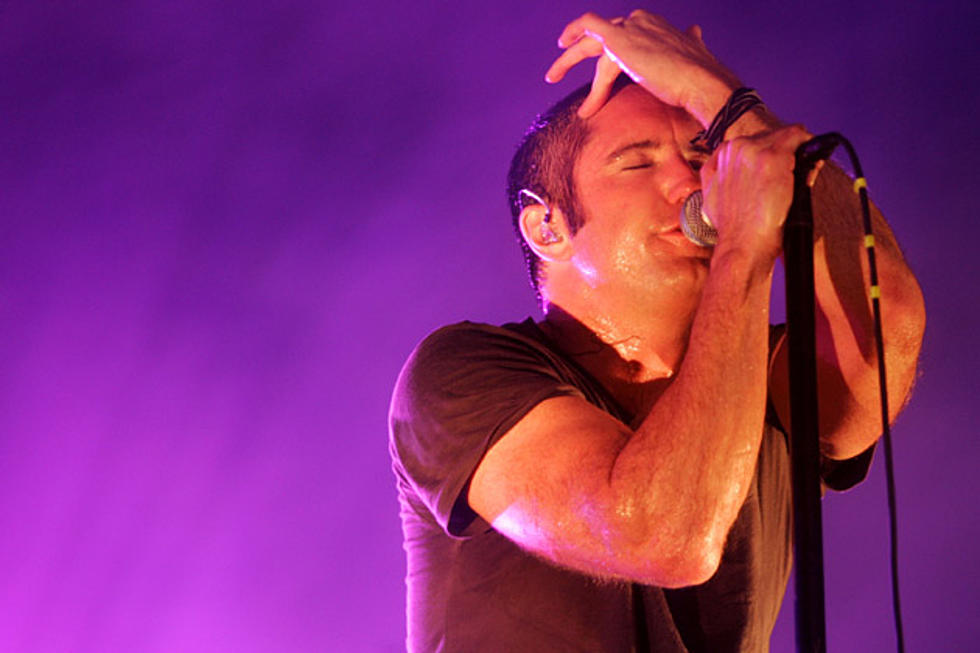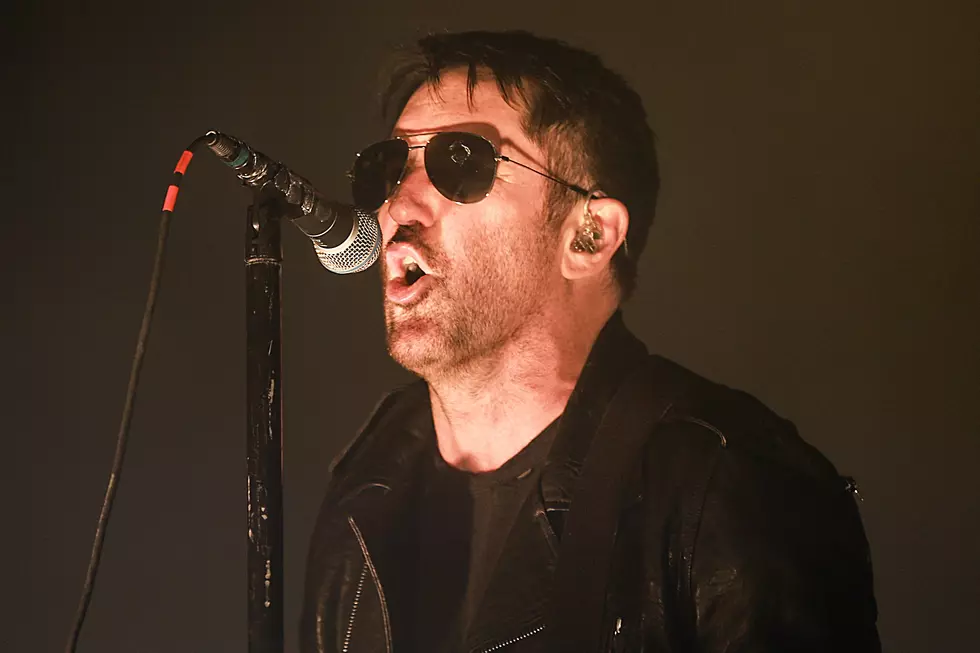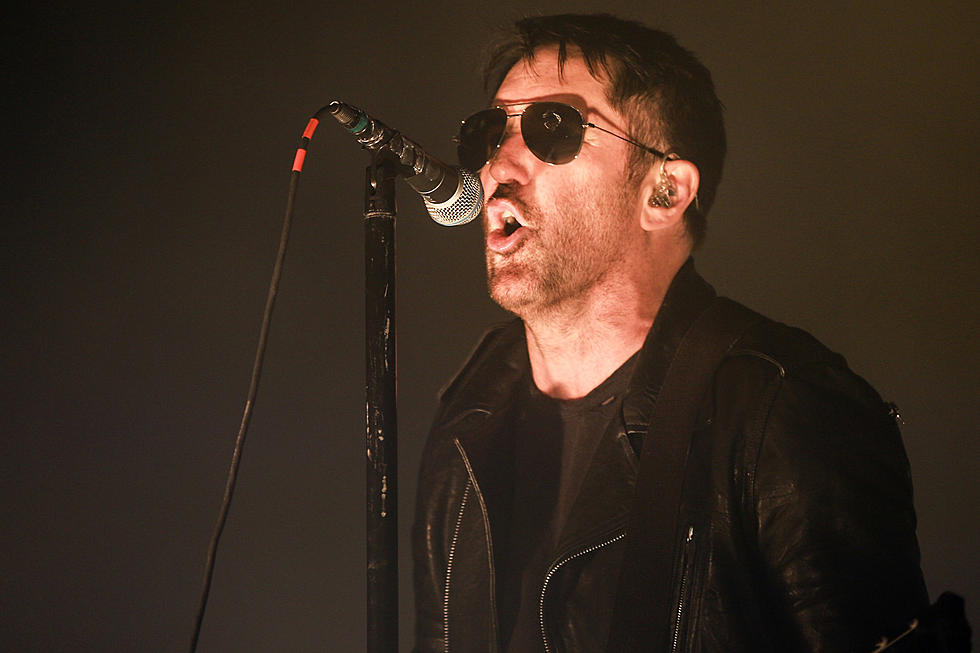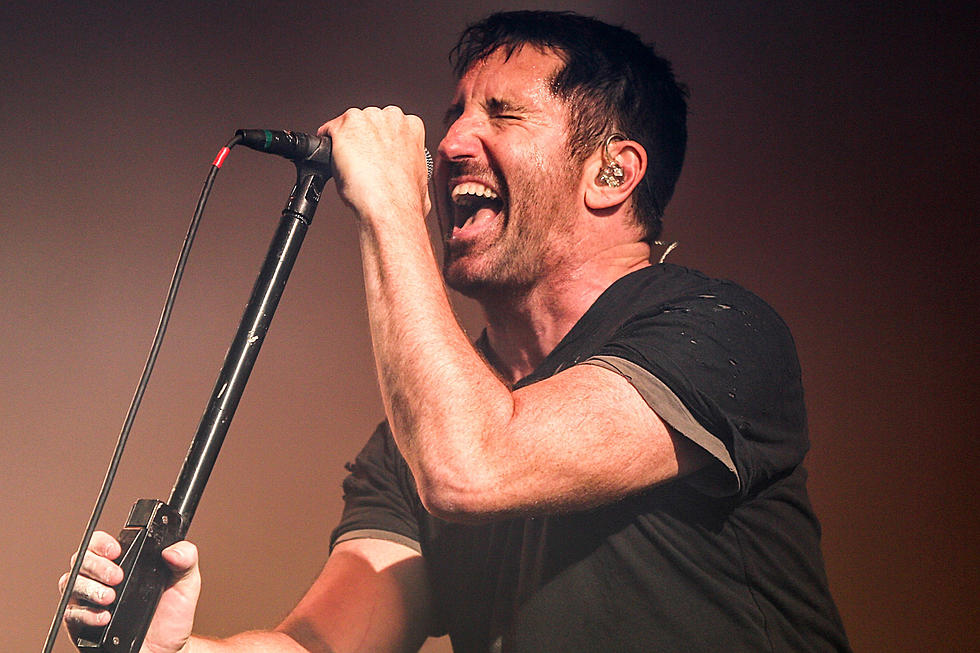
Instant Expert: Nine Inch Nails
You’ve seen them at parties, lurking in the corner, waiting to engage in battle disguised as conversation. They’re indie rock know-it-alls, and no matter what band or musician you mention, they’ve got an opinion — strong and almost certainly negative — ready to ram down your throat. With Instant Expert, we offer preparation for these very situations. Each Thursday, in advance of your weekend carousing, we pick an artist and provide a quickie career overview, highlighting both prevailing critical opinions and the inevitable contrarian counterarguments. Even if you’re completely unfamiliar with the music, you’ll be able to bluff your way through and defend your indie cred. This week: Nine Inch Nails.
- Sean Gardner, Getty Images
Sean Gardner, Getty Images The Gist
Trent Reznor formed Nine Inch Nails in 1988 in Cleveland as a one-man band, grabbing inspiration from industrial-rock behemoths while incorporating a synth-pop group's flair for melody. It was a potent combination from the start, with Nine Inch Nail's 1989 debut album, 'Pretty Hate Machine,' sounding unlike any other industrial LP from the era. Reznor opened up the music's commercial potential and applied it to an ambitious concept record for Nine Inch Nails' second album, 1994's massive 'The Downward Spiral.' Since then, Reznor has released new records sporadically -- some mere skeletal frames of music, others instrumental assaults. Most of it is fascinating. Reznor has played on most Nine Inch Nails albums by himself but has employed backing bands for live shows. After a five-year break, a new LP is due sometime this year.
Critical Consensus
'The Downward Spiral,' Nine Inch Nails' second record, is all about exorcising personal demons, a concept album that ends with a suicide. From the opening 'Mr. Self Destruct' to the closing 'Hurt,' the album teeters on the edge of death, darkness and despair for more than an hour. Not exactly cheery stuff, but Trent Reznor's masterpiece is a cornerstone of '90s alt-rock -- and a perfect summation of the musical landscape in 1994.
Contrarian Counterargument
You can hear the cathartic release all over Nine Inch Nails' debut, 'Pretty Hate Machine.' The machines rub against Trent Reznor with such abrasive intensity, his screams could very well be the real deal.
Counter-counterargument
'The Fragile,' 1999's double-album follow-up to 'The Downward Spiral,' is textured, layered and complex. In fact, it's almost prog at times. It's also Trent Reznor's most personal work.
- Topical Press Agency, Hulton Archive, Getty Images
Topical Press Agency, Hulton Archive, Getty Images Whatever You Do, Don’t Say This
That sounds like an old rusty machine they're using there. Are you sure that isn't an old rusty machine?
More From Diffuser.fm









